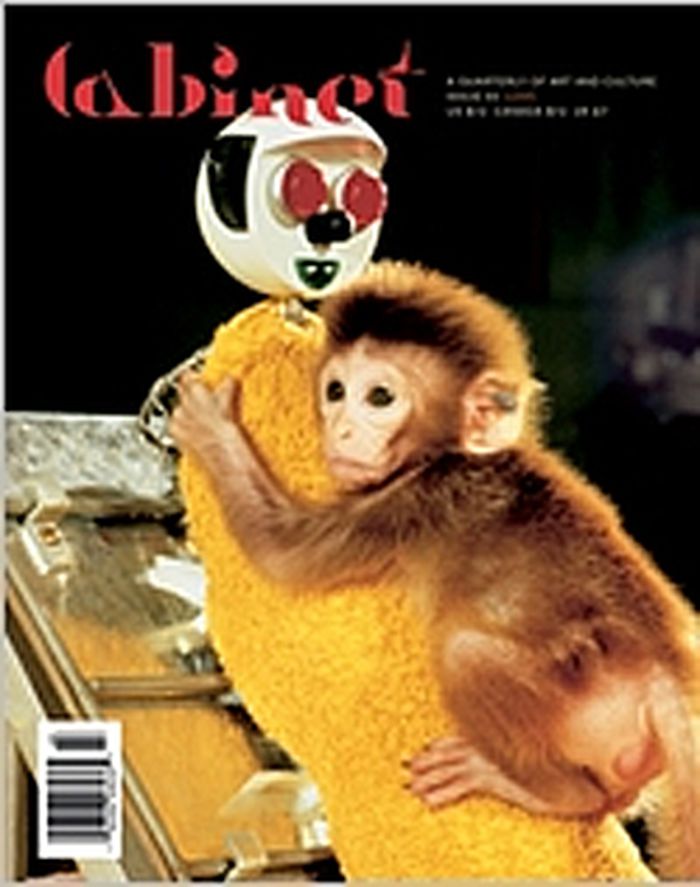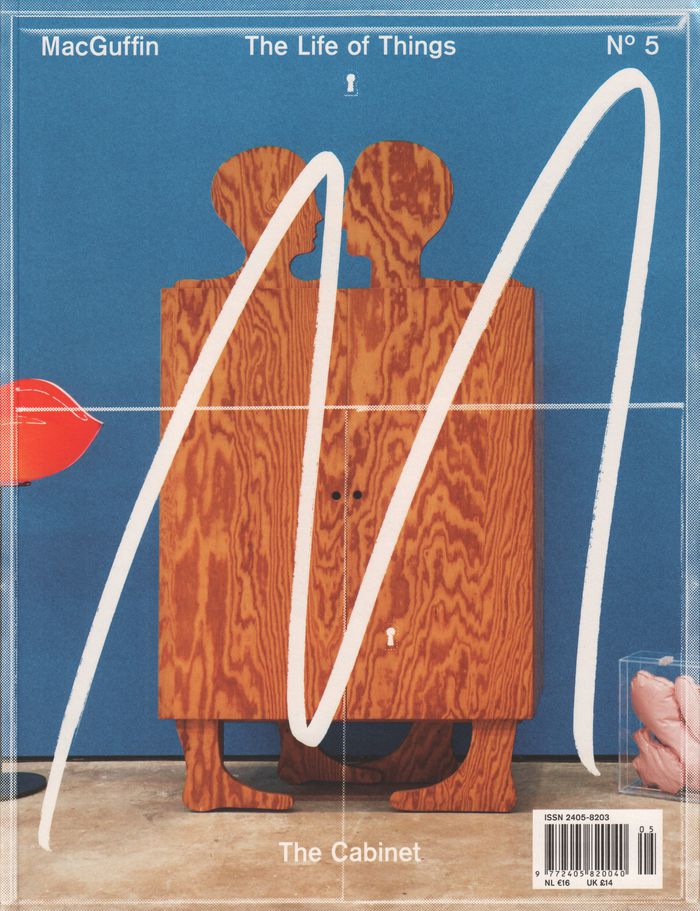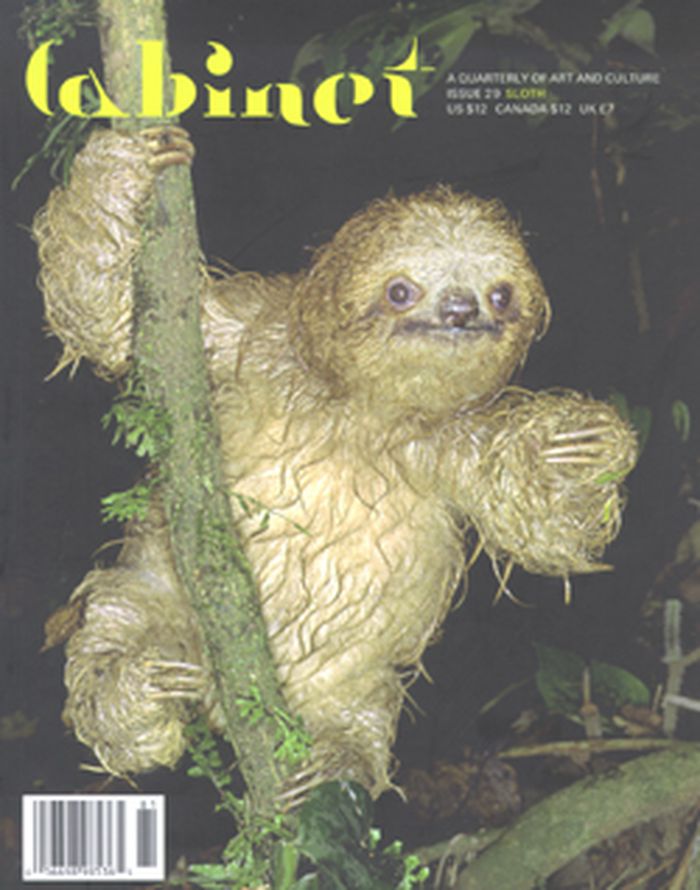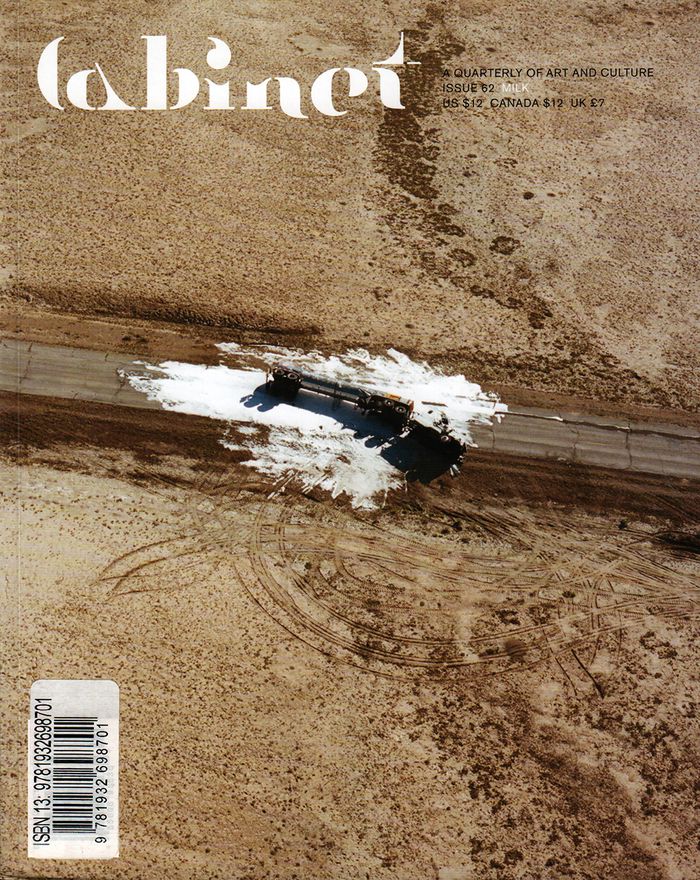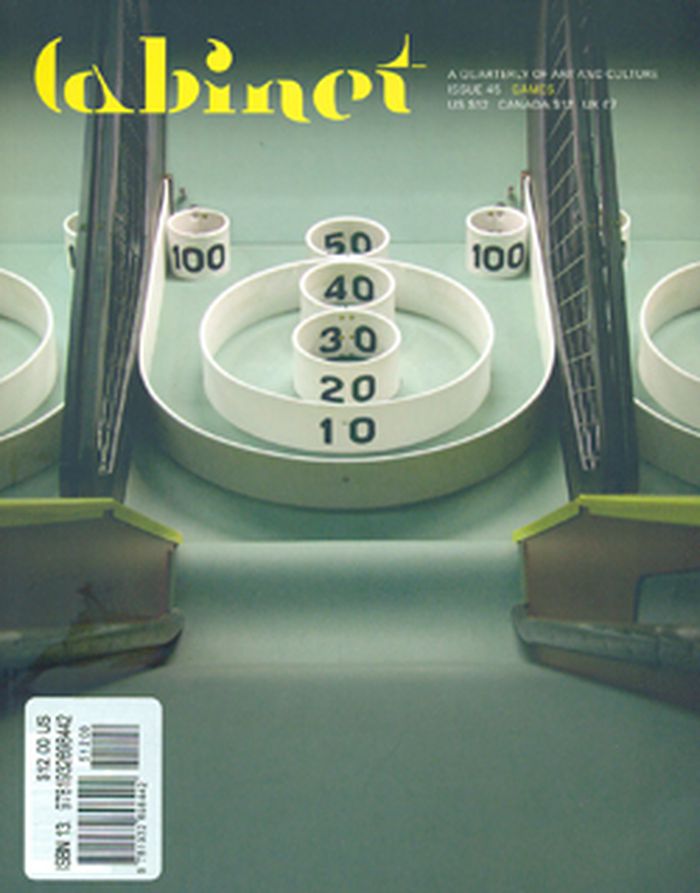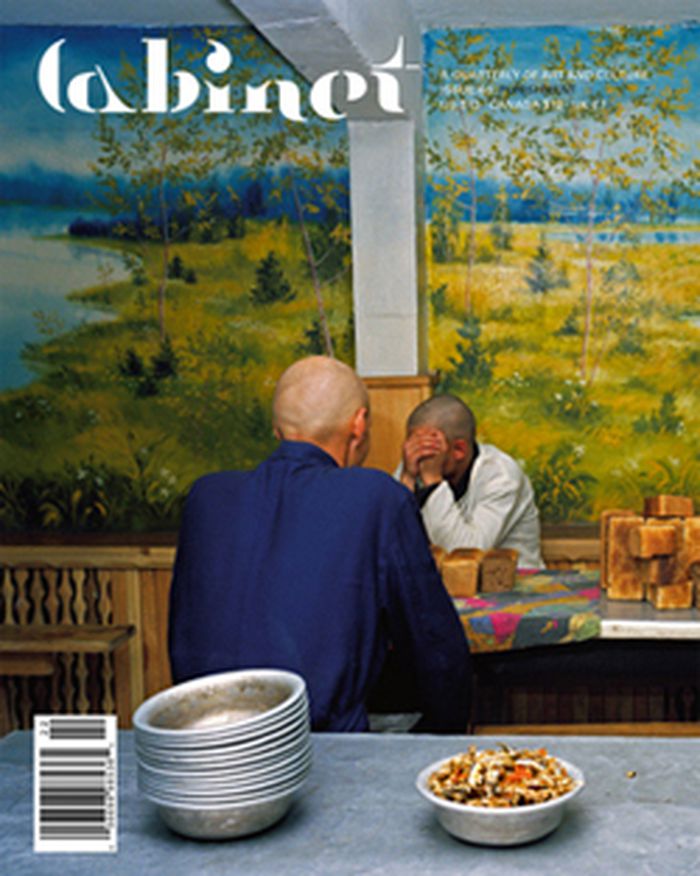Cabinet 55: love
$17.50
(disponible sur commande)
Résumé:
Love was classically thought to come in four distinct varieties--agape (spiritual love), eros (physical passion), philia (friendship) and storge (familial affection). It might be argued that with modernity, one of these--eros--has come to dominate our landscape, where romance and its obstacles inform so many of our cultural narratives and consumer fantasies. Nonetheless,(...)
Cabinet 55: love
Actions:
Prix:
$17.50
(disponible sur commande)
Résumé:
Love was classically thought to come in four distinct varieties--agape (spiritual love), eros (physical passion), philia (friendship) and storge (familial affection). It might be argued that with modernity, one of these--eros--has come to dominate our landscape, where romance and its obstacles inform so many of our cultural narratives and consumer fantasies. Nonetheless, all of these modalities of love continue to structure the relationships that govern human societies. Cabinet issue 55, with a special section on "Love," features Christopher Turner on the "celestial bed" of eighteenth-century proto-sexologist James Graham; Margaret Gordon on epistolary friendships; and Olga Lemerova on the love between humans and their pets. Elsewhere in the issue: Sasha Archibald on the decorative fabric or leather patches worn in the seventeenth century to conceal facial blemishes; D. Graham Burnett on watermarks; and Babak Sadr on how zoos perform annual inventories of their animals, both countable and uncountable.
Revues
livres
Description:
3 volumes : 5 maps (4 folded), 3 plans (2 folded), portrait ; 28 cm
Villemarie [Montréal] : Bibliothèque paroissale, 1865-1866.
Histoire de la colonie française en Canada.
Actions:
Exemplaires:
Description:
3 volumes : 5 maps (4 folded), 3 plans (2 folded), portrait ; 28 cm
livres
Villemarie [Montréal] : Bibliothèque paroissale, 1865-1866.
$35.00
(disponible sur commande)
Résumé:
Macguffin Magazine, The Life of Things, issue n. 05 opens up the curious life of the cabinet, where intimate stories are hidden away, kept and inevitably shown. Revealing enlightened DIY shelves, immaculate celebrity closets, whimsical cocktail bars, socialist kiosks, classic cubes and cabinets that beat you at a game of chess.
MacGuffin Magazine 05 : the cabinet
Actions:
Prix:
$35.00
(disponible sur commande)
Résumé:
Macguffin Magazine, The Life of Things, issue n. 05 opens up the curious life of the cabinet, where intimate stories are hidden away, kept and inevitably shown. Revealing enlightened DIY shelves, immaculate celebrity closets, whimsical cocktail bars, socialist kiosks, classic cubes and cabinets that beat you at a game of chess.
Revues
Cabinet 29 Sloth
$14.00
(disponible en magasin)
Résumé:
Items of interest for balkers, Bartlebys, benchwarmers, and boondogglers: - Dan Rosenberg on busy idleness - Marina van Zuylen on the intellectual history of lassitude - Christopher Turner on vasectomania and other cures for sloth - A history of the recline of civilization - Sina Najafi interviews Pierre Saint-Amand on the loafers of the Enlightenment - At(...)
Cabinet 29 Sloth
Actions:
Prix:
$14.00
(disponible en magasin)
Résumé:
Items of interest for balkers, Bartlebys, benchwarmers, and boondogglers: - Dan Rosenberg on busy idleness - Marina van Zuylen on the intellectual history of lassitude - Christopher Turner on vasectomania and other cures for sloth - A history of the recline of civilization - Sina Najafi interviews Pierre Saint-Amand on the loafers of the Enlightenment - At long last, a CliffsNotes for Cabinet! And ample additional material for dawdlers, deadbeats, derelicts, dodgers, and do-nothings: - Mark Morris on gingerbread houses - Joshua Foer on time without clocks - Carolyn de la Peña on Gustav Zander’s Stairmaster prototypes - San Keller’s artist project, set in a Rome sunglass shop - Brian Dillon on the water cure - Emily Roysdon opines on opal - Margaret Wertheim interviews Kenneth Libbrecht on snowflake formation - Alexander R. Galloway and McKenzie Wark play a Guy Debord game - Frances Richard and Emilie Clark discuss the lives of women natural historians
Revues, anciens numéros
livres
Description:
544 pages : illustrations (some color), facsimiles, portraits ; 25 cm
[Netherlands] : Fieldwork Museum, [2017], Bruges : Die Keure
The incomplete writings of Mark Dion : selected interviews, fragments, and miscellany / edited by Roel Arkesteijn.
Actions:
Exemplaires:
Description:
544 pages : illustrations (some color), facsimiles, portraits ; 25 cm
livres
[Netherlands] : Fieldwork Museum, [2017], Bruges : Die Keure
Cabinet 62 : milk
$15.00
(disponible sur commande)
Résumé:
One of only a handful of substances produced in nature expressly as food, milk is fundamental for infant mammalian nutrition, but is also foundational in human myth and religion. Cabinet issue 62, with a special section on “Milk,” includes Renata Salecl on the psychoanalytical implications of the recent death of a child solely breastfed for the first five years of his(...)
Cabinet 62 : milk
Actions:
Prix:
$15.00
(disponible sur commande)
Résumé:
One of only a handful of substances produced in nature expressly as food, milk is fundamental for infant mammalian nutrition, but is also foundational in human myth and religion. Cabinet issue 62, with a special section on “Milk,” includes Renata Salecl on the psychoanalytical implications of the recent death of a child solely breastfed for the first five years of his life; Jeff Dolven on milk and luminosity; Esther Leslie and Melanie Jackson on the ways in which milk is transformed from primary material to metaphorical excess; and Melanie Tyson on the colonial history of condensed milk. Elsewhere in the issue: Daniel Rosenberg on Maurice Sendak’s beloved “Nutshell Library” and the fantasies of book classification; Richard Cooke on the history of live sex shows in Europe and their sudden decline in the 1980s; and an artist project by S. Billie Mandle exploring the varieties of Catholic confessionals.
Revues
Cabinet 45: Games
$12.00
(disponible sur commande)
Résumé:
In the nineteenth century, Marx rejected the notion of homo sapiens, offering instead homo faber to indicate how consciousness follows from the primary activity of making. Against this, a certain ludic tradition has imagined a homo ludens, humans defined through their relationship with games and play. Cabinet 45 features Joshua Glenn on H.G. Wells’ “Floor Games”; D.(...)
Cabinet 45: Games
Actions:
Prix:
$12.00
(disponible sur commande)
Résumé:
In the nineteenth century, Marx rejected the notion of homo sapiens, offering instead homo faber to indicate how consciousness follows from the primary activity of making. Against this, a certain ludic tradition has imagined a homo ludens, humans defined through their relationship with games and play. Cabinet 45 features Joshua Glenn on H.G. Wells’ “Floor Games”; D. Graham Burnett on games played by game theorists; Barbara Levine and Jessica Helfand on dexterity games; James Trainor on the lost world of “adventure” playgrounds; Dana Katz on Brian Eno and Peter Schmidt’s “Oblique Strategies”; an interview with Bertell Ollman, inventor of the board game “Class Struggle”; and Jeff Dolven on poems as games. Elsewhere in the issue: Helen Larsson on the history of applause; Wayne Koestenbaum’s legendary “Legend” column; Naomi Muller on eating the zoo animals in Berlin during World War II; Jeremy Crichton on “spite” houses; and much more.
Revues
Cabinet 46: punishment
$12.00
(disponible sur commande)
Résumé:
From the rule of "an eye for an eye" in the Code of Hammurabi and the Old Testament to the rise of the reforming "penitentiary" in the nineteenth century, from Kant's notion of the right of retaliation to historical-philosophical explorations by Michel Foucault and John Rawls, the question of punishment has long been central to religious, political and philosophical(...)
Cabinet 46: punishment
Actions:
Prix:
$12.00
(disponible sur commande)
Résumé:
From the rule of "an eye for an eye" in the Code of Hammurabi and the Old Testament to the rise of the reforming "penitentiary" in the nineteenth century, from Kant's notion of the right of retaliation to historical-philosophical explorations by Michel Foucault and John Rawls, the question of punishment has long been central to religious, political and philosophical discourse. Cabinet issue 46, with a special section on Punishment, features Gregory Whitehead on the legacy of Philip Zimbardo's controversial "prison experiments" at Stanford University; Justin E.H. Smith on punishment and sacrifice; Johan Lindqvist on music and torture; and a multi-generational conversation about corporal punishment in the home. Elsewhere in the issue: an interview with Robert N. Proctor on how diamonds were made into the most precious of gems; George Prochnik on the history of tattoos; and Marius Kwint on the Cornell Brain Club.
Revues
périodiques
$12.00
(disponible sur commande)
Résumé:
Cabinet is an award-winning quarterly magazine of art and culture that confounds expectations of what is typically meant by the words "art," "culture," and sometimes even "magazine." Like the 17th-century cabinet of curiosities to which its name alludes, Cabinet is as interested in the margins of culture as its center. Presenting wide-ranging, multi-disciplinary content(...)
Cabinet 15: the average, fall 2004
Actions:
Prix:
$12.00
(disponible sur commande)
Résumé:
Cabinet is an award-winning quarterly magazine of art and culture that confounds expectations of what is typically meant by the words "art," "culture," and sometimes even "magazine." Like the 17th-century cabinet of curiosities to which its name alludes, Cabinet is as interested in the margins of culture as its center. Presenting wide-ranging, multi-disciplinary content in each issue through the varied formats of regular columns, essays, interviews, and special artist projects, Cabinet's hybrid sensibility merges the popular appeal of an arts periodical, the visually engaging style of a design magazine, and the in-depth exploration of a scholarly journal. Playful and serious, exuberant and committed, Cabinet's omnivorous appetite for understanding the world makes each of its issues a valuable sourcebook of ideas for a wide range of readers, from artists and designers to scientists and historians. In an age of increasing specialization, Cabinet looks to previous models of the well-rounded thinker to forge a new type of magazine for the intellectually curious reader of the future.
périodiques
février 2004, New York
Revues
périodiques
$11.00
(disponible sur commande)
Résumé:
Cabinet is an award-winning quarterly magazine of art and culture that confounds expectations of what is typically meant by the words "art," "culture," and sometimes even "magazine." Like the 17th-century cabinet of curiosities to which its name alludes, Cabinet is as interested in the margins of culture as its center. Presenting wide-ranging, multi-disciplinary content(...)
Cabinet 16: the sea, winter 2005
Actions:
Prix:
$11.00
(disponible sur commande)
Résumé:
Cabinet is an award-winning quarterly magazine of art and culture that confounds expectations of what is typically meant by the words "art," "culture," and sometimes even "magazine." Like the 17th-century cabinet of curiosities to which its name alludes, Cabinet is as interested in the margins of culture as its center. Presenting wide-ranging, multi-disciplinary content in each issue through the varied formats of regular columns, essays, interviews, and special artist projects, Cabinet's hybrid sensibility merges the popular appeal of an arts periodical, the visually engaging style of a design magazine, and the in-depth exploration of a scholarly journal. Playful and serious, exuberant and committed, Cabinet's omnivorous appetite for understanding the world makes each of its issues a valuable sourcebook of ideas for a wide range of readers, from artists and designers to scientists and historians. In an age of increasing specialization, Cabinet looks to previous models of the well-rounded thinker to forge a new type of magazine for the intellectually curious reader of the future.
périodiques
janvier 2005, New York
Revues
